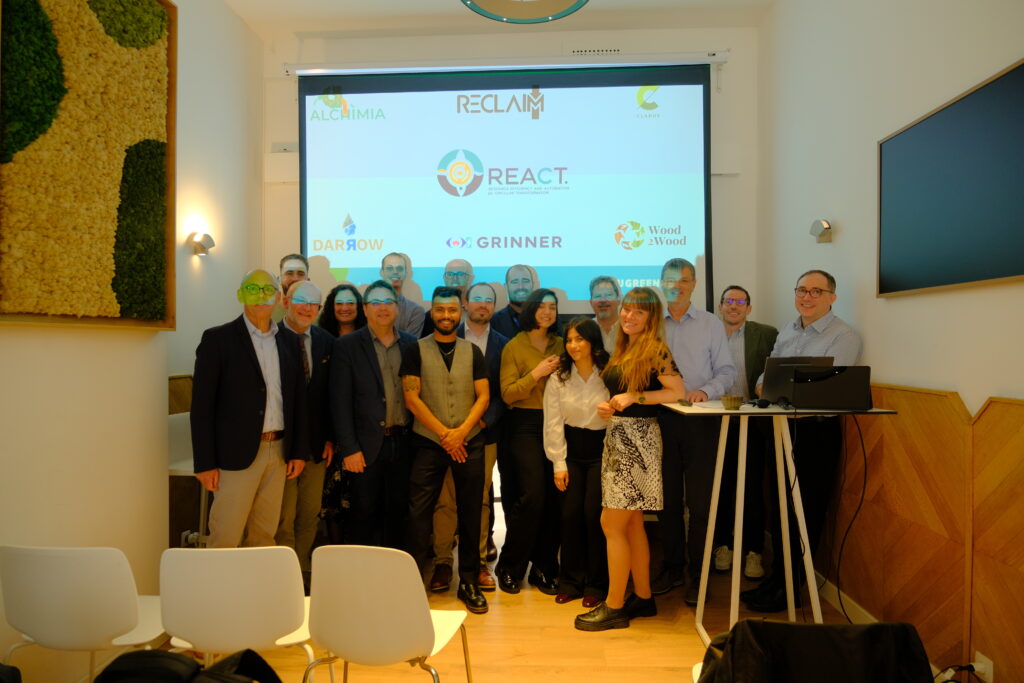
3, 6, 1… and goal! No offsides in this formidable formation that Team REACT Cluster brought to the EU Green Week on June 4 in Brussels.
3 (months), 6 (ground-breaking projects) and 1 (shared goal)… deliver concrete, scalable, cross-sectoral industrial solutions to support the EU build a clean, circular, and competitive economy.
On June 4, six European Union-funded projects teamed up as a European cluster to demonstrate how AI-driven innovations can enhance sustainability, reduce waste and drive strategic autonomy in European industrial sectors. The event titled “Circular Economy in Action: Rethinking Resources for a Greener Future”, witnessed 6 EU-funded projects, namely ALCHIMIA Project, CLARUS Project, DARROW Project, RECLAIM Project, GRINNER Project, and Wood2Wood Project, share their project knowledge across various industrial sectors.
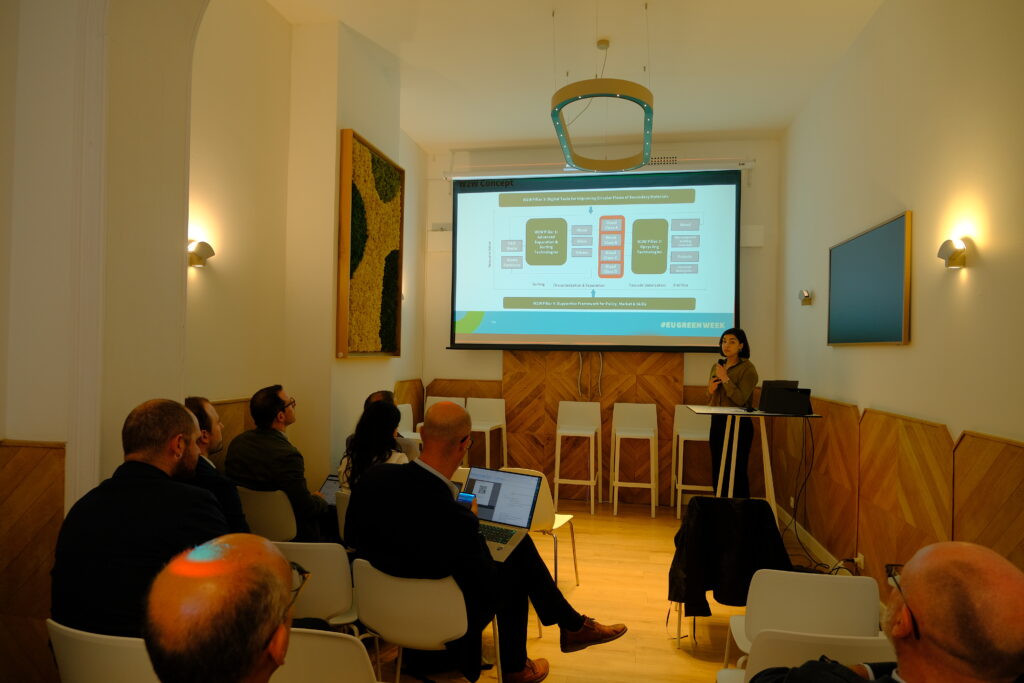
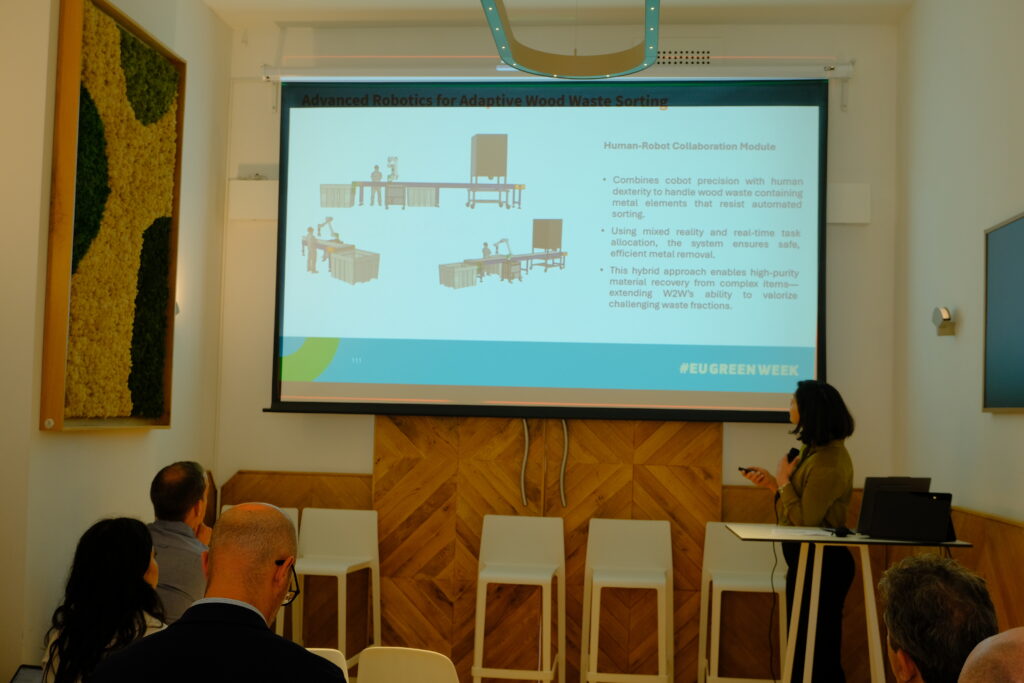
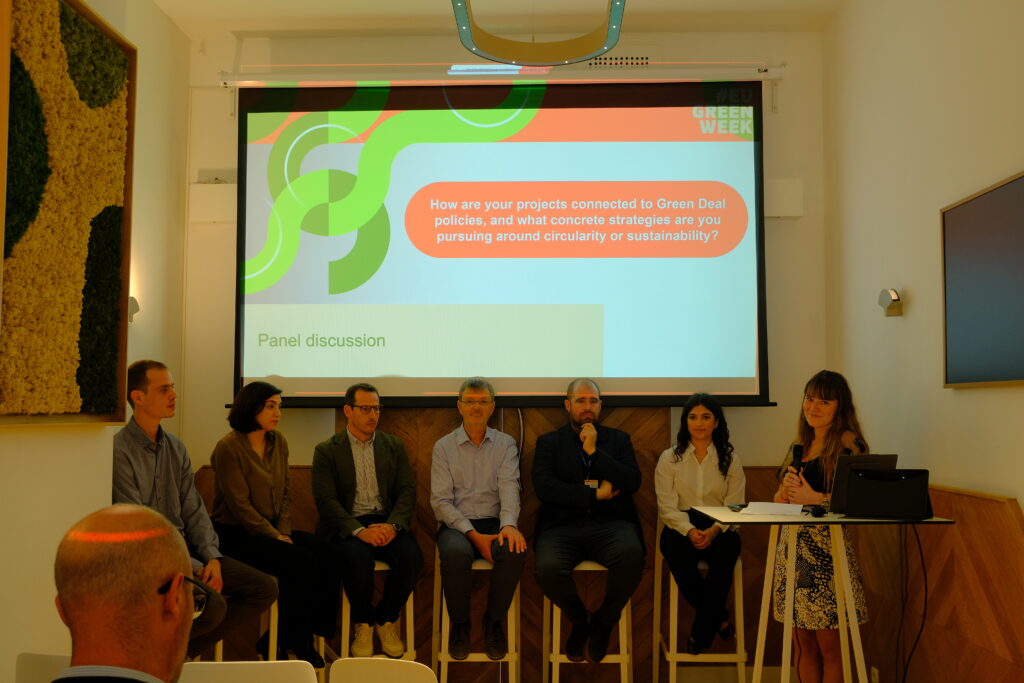
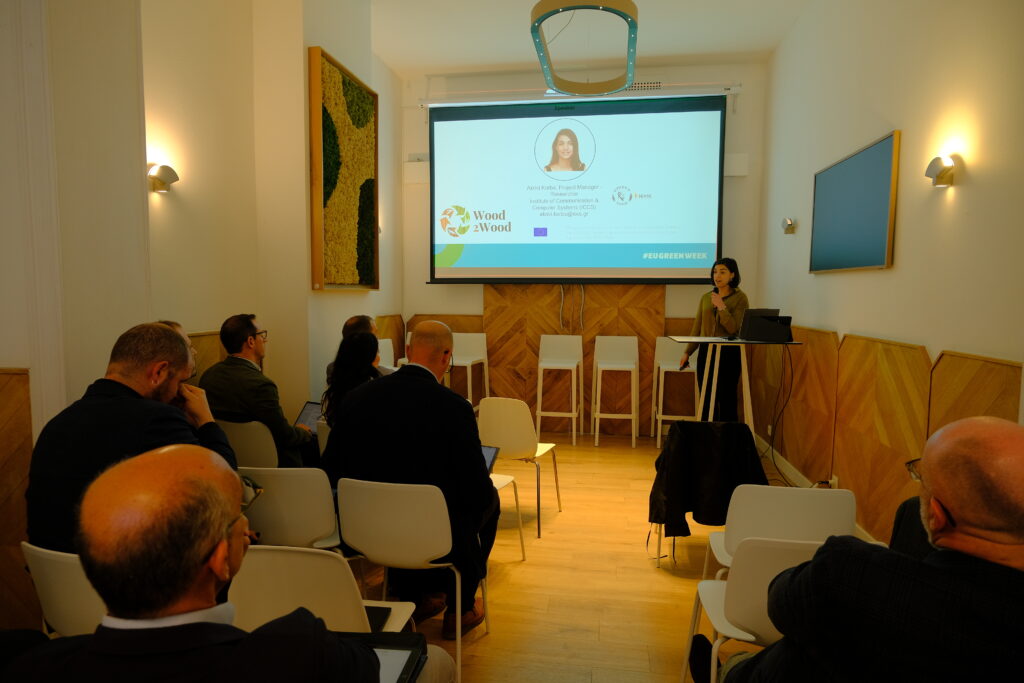
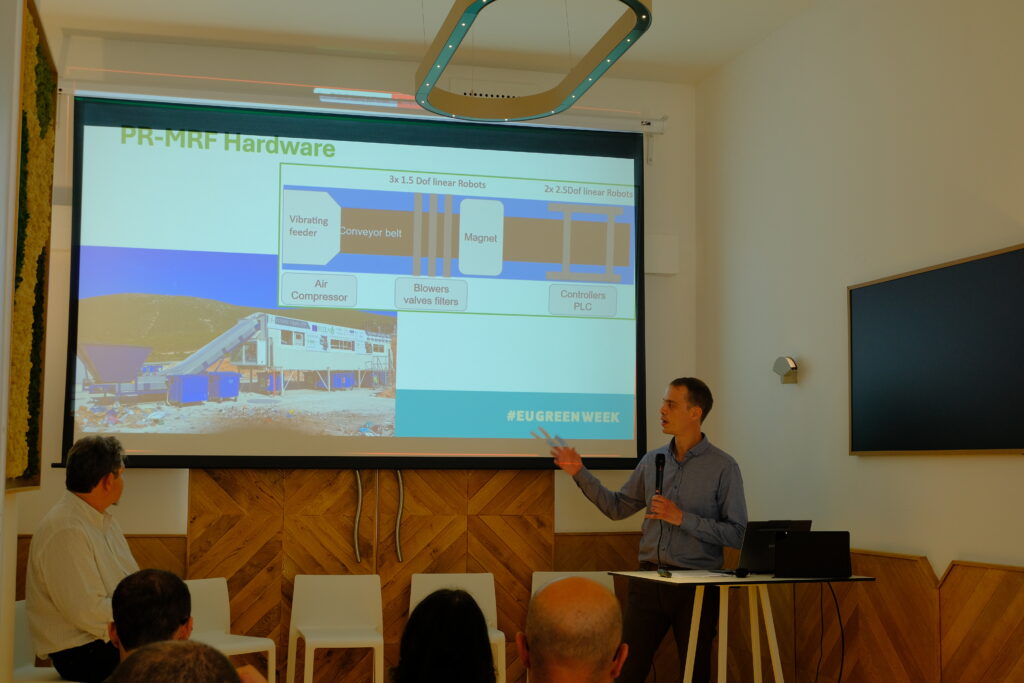
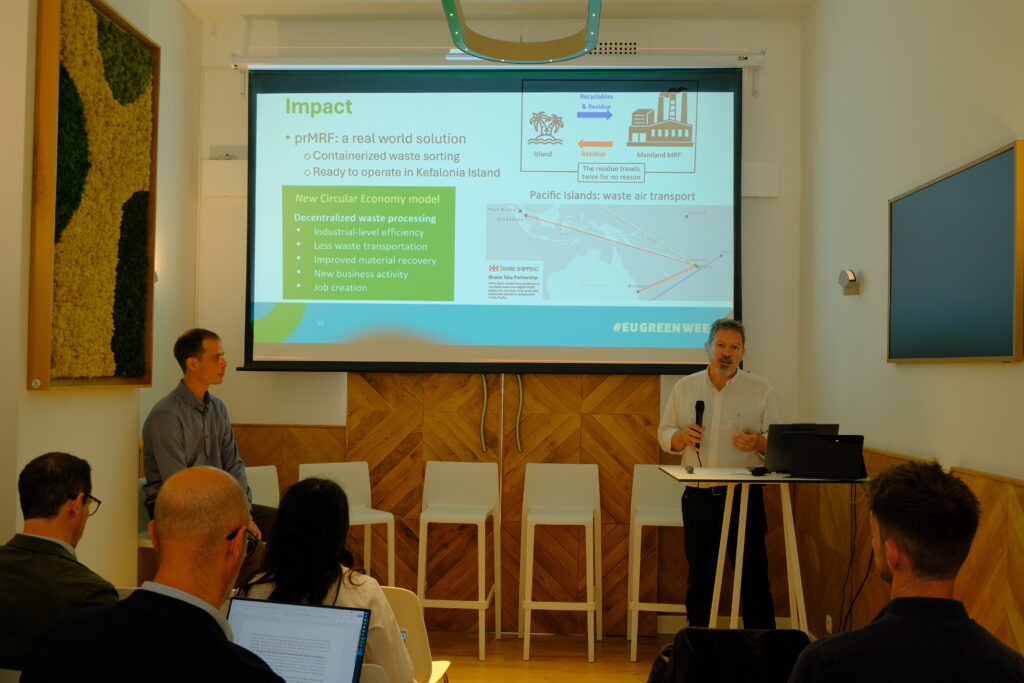
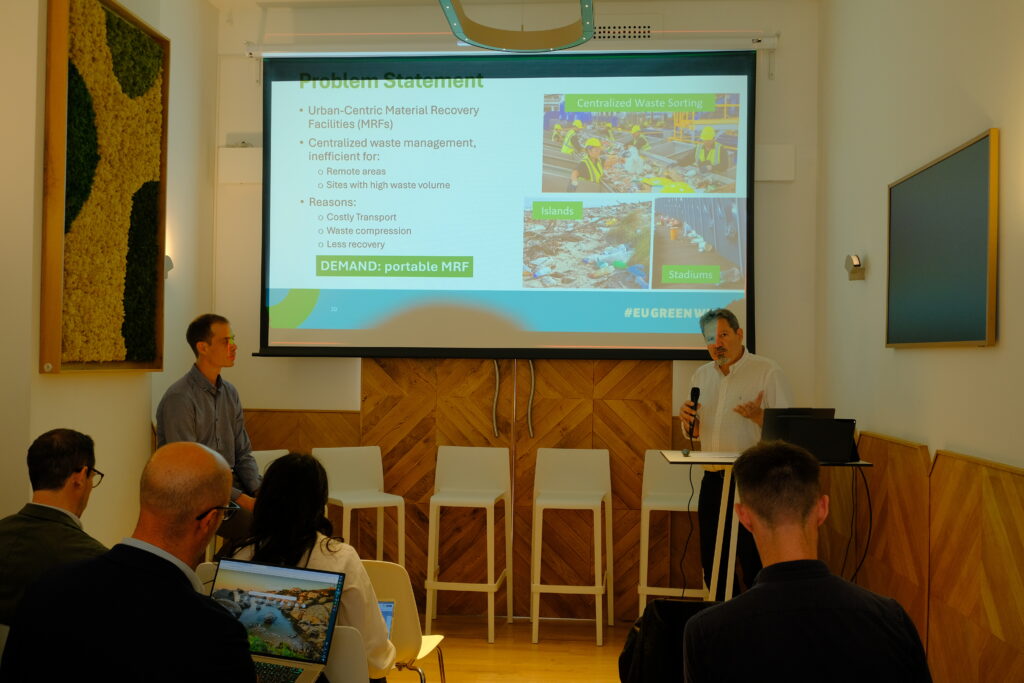
Together, all these projects formed the REACT Cluster, short for “Resource Efficiency and Automation for Circular Transformation”.
The EU Green Week is an annual European environmental conference organised by the European Commission’s Directorate-General for Environment in Brussels. The purpose of the EU Green Week is multi-fold: to raise awareness, promote and discuss the latest developments in European environmental policies. Typically, the EU Green Week attracts policymakers, businesses, civil society, environmentalists, and other interested stakeholders from Europe and around the world.
This year’s EU Green Week theme “Clean, Circular and Competitive” follows EU’s “Competitive Compass” and the Clean Industrial Deal announced in spring this year that will provide a strategic direction to the EU to achieve sustainable competitiveness in the industrial sector.
From AI-powered sorting in municipal waste management, smarter wastewater treatment and robotic WEEE sorting to wood waste upcycling strategies, sustainability performance assessment in the food sector, and AI-enhanced scrap steel analysis for circular insights, attendees and stakeholders received fresh insights into how these innovations are unlocking new value in circular economy strategies.
RECLAIM Project: AI-driven portable robotic material recovery facility for decentralised material recovery | Michail Maniadakis and Fredy Raptopoulos
ALCHIMIA Project: Data and decentralised Artificial Intelligence for a competitive and green European metallurgy industry | Bernd Kleimt and Irene García Martínez
Wood2Wood project: Advanced circularity for wood waste materials from construction and demolition, and furniture sectors | Akrivi Korba
CLARUS Project: Optimising production and logistic resources in the time-critical bio production industries in Europe | Ludovica Miele and Francisco Fraile, PhD
DARROW Project: Building a data-driven AI solution to optimise resource recovery from wastewater | Beñat Elduayen Echave and Luis Vitores
GRINNER Project: How AI-enabled robotic system support recycling facilities in preventing battery fires? Antonis Porichis
During the panel discussion, the participants fielded multiple questions from the moderator, ranging from the interconnectedness of their project ambitions with EU Green Deal, barriers to adoption of circular innovations in Europe, transferability of their technical solutions and their acceptance by the industry.
For example, Akrivi Korba from Wood2Wood was asked about the barriers to the adoption of circular innovations in Europe in relation to the project.
She said the “main barrier is in the legislations for a harmonized framework for wood waste classification. Now in Europe different member states have their national policies. In some cases treated wood cannot be reused and so on…”
Akrivi pointed out a gap that is echoed in our project report on “Classifications Frameworks and Policy Options” by our consortium partner CEPS.
The report illuminates this challenge in Europe and validates Akrivi’s observation that there is variation in waste wood approaches across Member states along with several technological, market and policy challenges to waste wood utilisation.
Fredy Raptopoulos from the RECLAIM project was asked how the project is connected to the EU Green Deal.
“RECLAIM supports the EU Green Deal by enabling recycling in remote areas where no alternatives exist. It also reduces CO₂ emissions by providing a more ecological solution—processing waste on-site rather than transporting it to the mainland.”
Following this, ALCHIMIA’s Bernd Kleimt was asked on the steps they are taking to ensure the acceptance of their technical solutions by the industry.
“We are involving, in the first place, plant engineers to explain them how the AI solutions in the project are working, the results obtained and how can they interpret it. This has already been done. In addition, we have spoken with plant engineers, and the next and final step will be, as soon as the solution is running online on 24×7 basis, to train the operators on the system. We will prepare user manuals to inform everyone on the calculations performed and the interpretation of the results. These actions are important for operators, who are sitting in front of the human interface, to know about the calculations which are running in the background and why these results are displayed to them,” said Kleimt.
While industry acceptance is key to adoption of these latest innovations, transferability of these solutions across sectors will ensure accessibility and scalability. Francisco Fraile from Clarus noted with clarity that some assets might be very specific to organisations and thus transferability in some cases might be limited.
“I think we covered this partially in the slides, but some AI-based assets on machine learning are intrinsically difficult to transfer because they are built specifically to solve a problem for a specific organisation using their data,” he clarified.
Regarding how CLARUS project is connected to the EU Green Deal, Ludovica Miele said their project’s sustainability assessment optimisation tool assesses how companies are impacting the EU Green Deal but also in terms of environmental sustainability. “Apart from this indicator, we also have the AI models that are impacting on improving the resource consumption of the production and logistics process,” she said, adding that “with this optimisation, we will have a positive impact on the resources in the two pilots in the project and hopefully also a solution that can be used in the future for other companies and other sectors.”
DARROW project’s Beñat Elduayen Echave their project’s smart wastewater treatment is related with the Green Deal because it aims to reduce the pollution while taking advantage of the resources that wastewater is providing.
“In our case, all the expected impacts regarding the environmental assessment in our project are focused on the EU Green Deal, such as releasing water with less pollutants with nitrogen and phosphorous, increased energy production, etc.”
From metallurgy to food, waste, water, and wood—each of these projects brought to the forefront the transformational power of AI and Robotics to solve real industrial challenges.
Thank you to all the incredible projects and speakers who contributed to the REACT Cluster’s EU Green Week partner side event.
Thanks to Anna Brékine who mastered the mid-field as our moderator and united us in the first place. And Ludovica Miele for playing a good striker with our social media posts. Magdalena Charytanowicz-Pierard for defending our position by securing a venue for the event!
What we’ve seen during the EU Green Week goes far beyond theory.
These solutions not only have the potential to accelerate Europe’s transition to a Circular Economy and strengthen its strategic autonomy and industrial competitiveness.
On behalf of the REACT Cluster, thank you to all the projects that collectively supported each other. See you soon!
